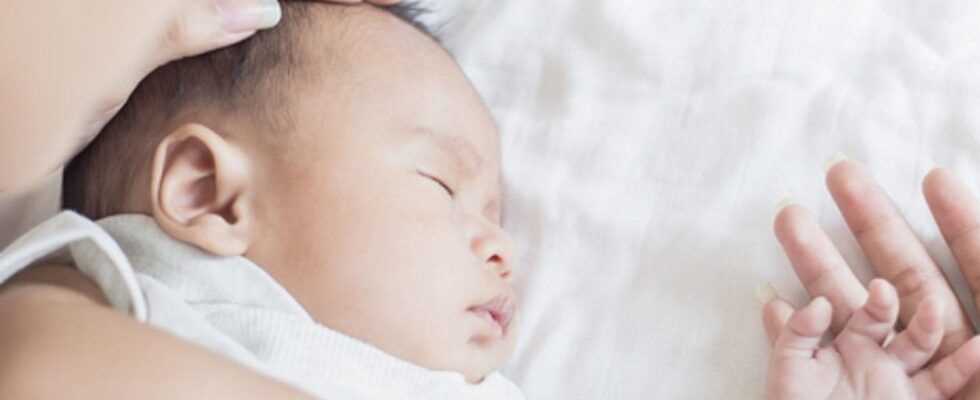Home
/ Mom / Baby / Blood test could diagnose brain damage in babies deprived of oxygen at birth
Many experiments have taken place to find the reasons why some babies suffer from neurological disorders when they are born. Because of this, a blood test could help doctors find out whether babies deprived of oxygen at birth might suffer brain damage later.
Asphyxia is a depletion of oxygen in the body that can have negative consequences on all vital organs. The consequences of suffocation can be extremely serious or even life-threatening. For babies, this lack of oxygen can occur in the womb, during childbirth, or immediately after birth.
A blood test to predict possible neurological damage
Researchers at Imperial College London are working on a blood test to predict whether or not a baby may have neurological problems from a lack of oxygen at birth. In the long term, further research may lead to the possibility of diagnosing new targets to treat these brain damage even before it becomes permanent.
According to a preliminary study of 45 babies who suffered from a lack of oxygen at birth, a simple blood test could identify those at higher risk of neurological damage. In fact, the blood tests are taken six hours after the baby is born and the baby will be under medical supervision for 18 months. Their blood is tested to prevent the appearance of certain genes that can lead to neurological disorders caused by oxygen deprivation.
Devastating consequences
Epilepsy, blindness, deafness, these are the consequences of a lack of oxygen. Babies can suffer from a lack of oxygen for several reasons, including when the mother has too little oxygen in her blood, either because of an infection or a complication of the umbilical cord. Since there is oxygen deprivation, brain damage may develop later that can affect different parts of the brain.
The baby is thus at risk of presenting neurological disorders such as paralysis, deafness or even epilepsy.
In order to avoid such consequences, researchers are also looking at hypothermia, one of the most used elements for treating asphyxia. Indeed, hypothermia makes it possible to drop the temperature of the baby in order to prevent any development of neurological disorders.
" We know early intervention is essential after oxygen deprivation, but knowing which babies need this help and how best to help them was still a challenge. ", According to study co-author Dr. Paolo Montaldo.
Read also :
Shaken baby syndrome: 200 victims recorded each year
Deafness in babies soon to be cured by stem cells?
